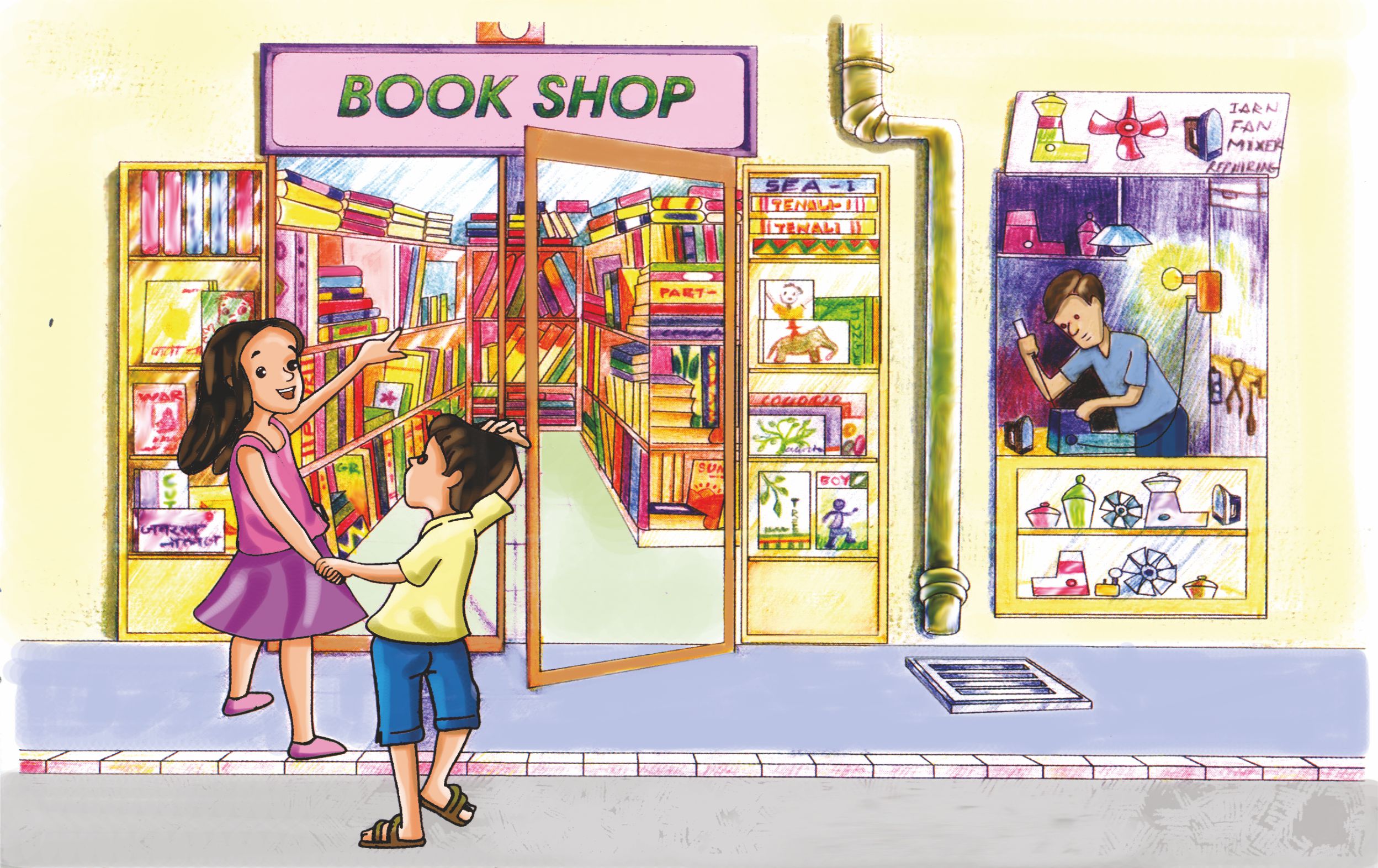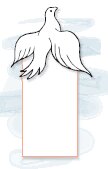Table of Contents
Going to buy a Book
and me some money.
“Go and buy books,” he said.
We were both very happy.
Should we go now?
Should we go later?
Should we go today?
Should we go tomorrow?
We decided to go right now.


Should we go to the small shop?
Should we go with somebody?
Should we go alone?
We decided to go to the small shop, just the two of us.
It is small but it has many books.
The man in the shop likes us.
He always helps us.
Should I buy a book with a lot of stories?
Should I buy a thin book?
I could not decide.
The man in the shop smiled at us.
“Relax, come with me,” he said.
“These books are about animals.
Those are about machines.
Those over there are about wars.
Take what you want.”
My brother picked some books.
I sat on the floor.
He sat on the chair.
And we read and we read and we read.


There was no sound.
One hour passed.
Two hours passed.
Finally, we knew which books to buy.
I got a fat book with many stories.
My brother got a big book with many pictures.
We climbed on his bed.
He put his arms around us and then
We read, and read, and read.
– Rukmini Banerji
New words
alone, bookshop, machines, finally, climbed
Reading is fun
1. Why did grandfather give the children money?
2. Where did they go to buy books?
3. Did the girl buy a picture book?
Let’s listen and search
In small groups one child will give directions orally only once; the others will listen and hunt for the following:
1. a circle 
2. a square 
3. a triangle 
4. a piece of paper with three signatures 
5. a piece of paper with red colour 
6. a piece of paper with a number 
7. a piece of paper with the label of tea
8. a twig in the shape of an alphabetic letter
9. a slab of mud with a drawing 
10. a flower in the shape of a number 
Let’s talk
1. Is there a bookshop near your home? If there is, do you like to visit it?
2. What are the different kinds of books in this bookshop or in any other bookshop you have seen? Tell the class.
Let’s write
1. Look at these sentences in the story –
(a) Should we go to the big market?
(b) Should we go to the small shop?
(c) Should I buy a thin book?
The coloured words above are describing words.
Now fill in more describing words into the passage below –
It was a _____ night. A _____ girl sat up in bed listening to her mother tell a _____ story. Her _____ eyes opened wide and she gave a _____ smile. “Now go to sleep, Paro,” hermother closed the book. “_____ dreams.”
2. Imagine that you will go to the bookshop tomorrow.
What will you do there? Write five sentences beginning with –
(a) I shall
(b) I shall
(c) I shall
(d) I shall
(e) I shall
3. Tina goes to her school library to borrow a book. Complete her dialogue with the librarian by using and or or in the blanks.
Tina: Ma’am, I want to borrow a book.
Librarian: Do you want a story book _____ a book of poems?
Tina: I want a story book.
Librarian: Do you like stories about animals _____ adventure stories?
Tina: I like both.
Librarian: Go to the second cupboard. On the first shelf, you will find animal stories_____ on the second, adventure stories.
Tina (after selecting two books): Ma’am, I want Black Beauty _____ Panchantantra Stories.
Librarian: You can have either Black Beauty _____Panchantantra Stories.
4. What is your favourite book? Write down the name of the book. Then write down the story.
Let’s make a bookmark
Make your own bookmark
Remember to treat your books well. Never fold the corners of pages. This makes books look shabby and old.

A bookmark helps you to find the page you were on when you last read your book.
Here is a way to make your own beautiful Dove Bookmark.
You need –
-
An old greetings card/wedding card/scissors
-
A black bindi for the eyes
Method –
-
Take the old card. You will need to use the inside of the card.
![A card.]()
-
Fold it into two as shown in the picture.
![Sheet folded into a card shape.]()
-
Trace the outline of a dove on the card.
![Picture of a dove on the card.]()
-
Cut it along the lines.
-
Make an outline with a black pen.
-
Stick a bindi for the eye.
-
Paste it on a strip of 2 inches x 4 inches.
-
Your Dove Bookmark is now ready to be used.
![Blank sheet cut into a rectangular shape.]()
Let’s cover our book
-
Spread your notebook on a brown paper which is four inches bigger than your notebook, as shown in the picture.

-
Fold the paper into two halves with the book inside it in the middle.

-
Fold the two open flaps of paper inside the first and the last page of the book and press to crease.

-
Fold the closed end of the two top and bottom flaps of the paper, forming a triangle. Crease the paper and cut it.

-
Fold the two front flaps inside the first page and crease it.

-
Fold the two back flaps under the last page and crease it.

-
Now your book is neatly covered.

-
Write your name and class on the cover. Then write the subject you will use this notebook for.
Do you know?

The earliest books were written by hand. Two thousand years ago in India, birch bark (bhojapatra) and palm leaves (talapatra) were used for pages. A pen and black ink were used to write on birch bark. A sharp, iron spike was used for writing on palm leaves. Holes were drilled through the leaves and the book was held together by a string!
Enjoy and read the poem
Say in Chorus
Books are great! Books are fun!
Books let you do what you’ve never done!
Read a good mystery, solve a crime!
Read about history, go back in time!
Read about a lost dog, where can it be?
Read about a giant frog under the sea!
Read a very funny book, tears go away!
Read a bright, sunny book on a rainy day!
Chorus –
Books are great! Books are fun!
Let’s read books, everyone!
– Mash Goldfish (adapted)



